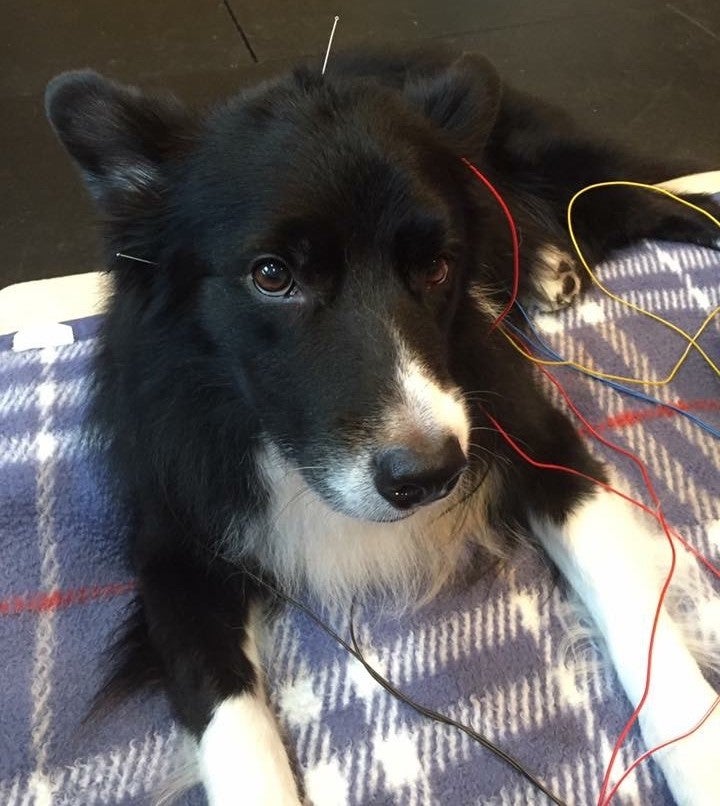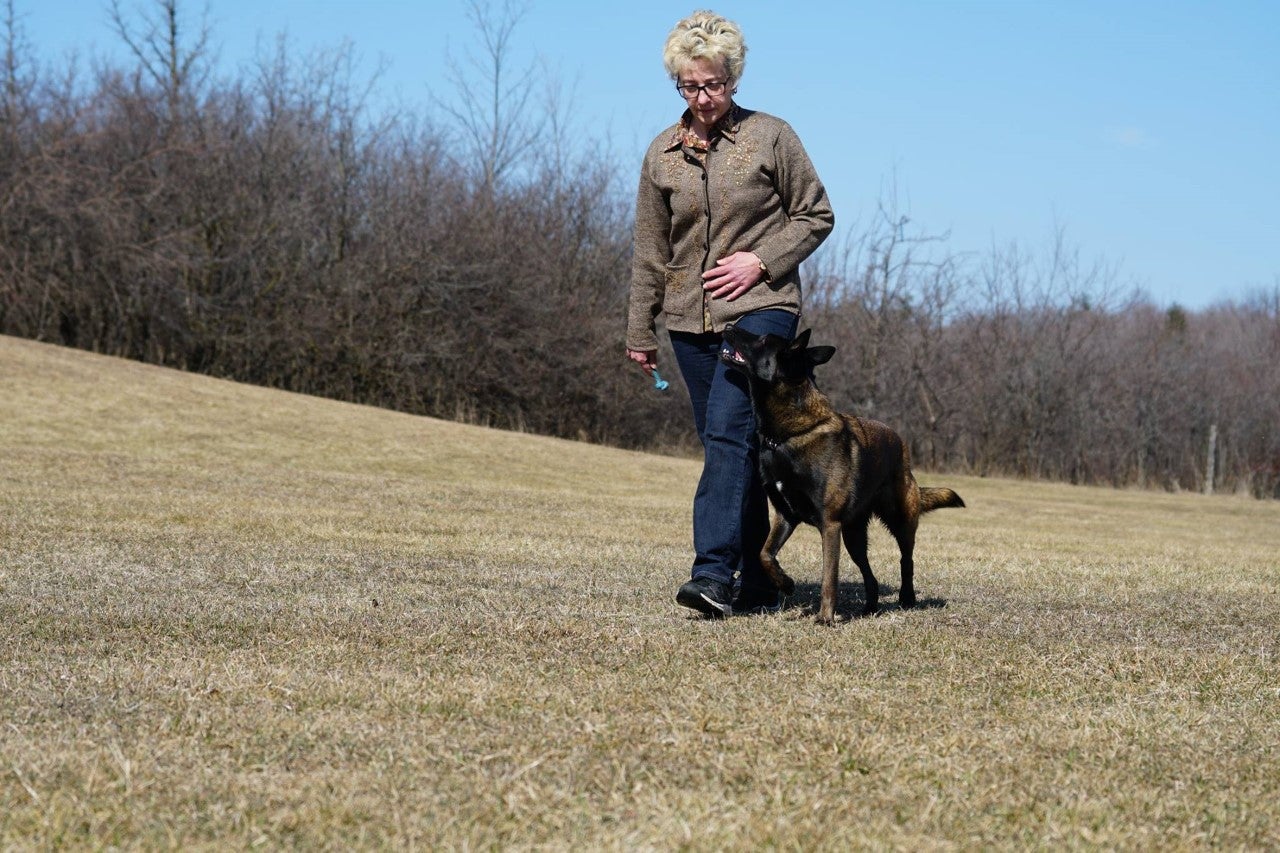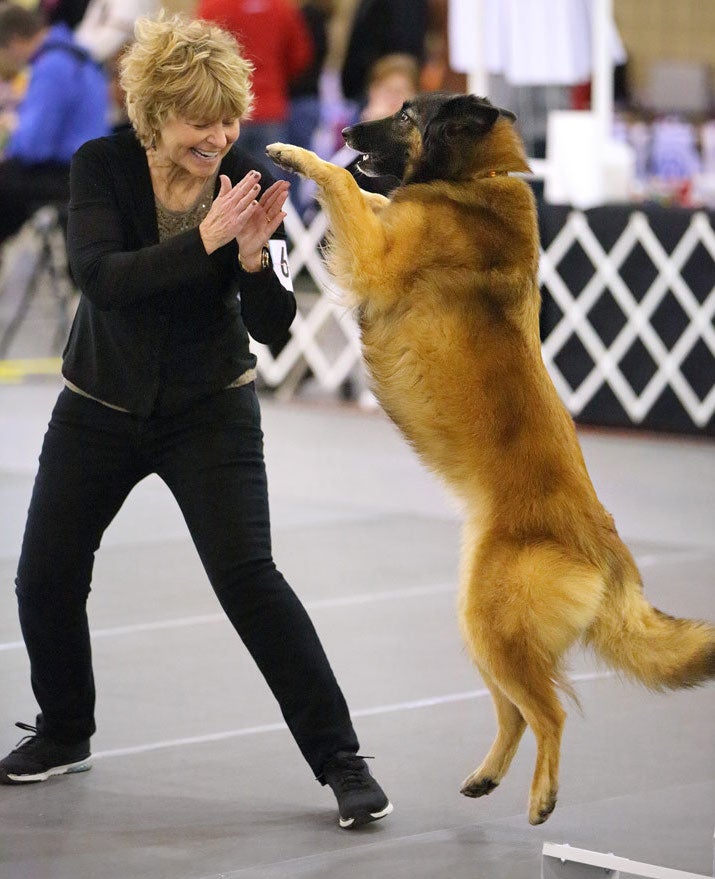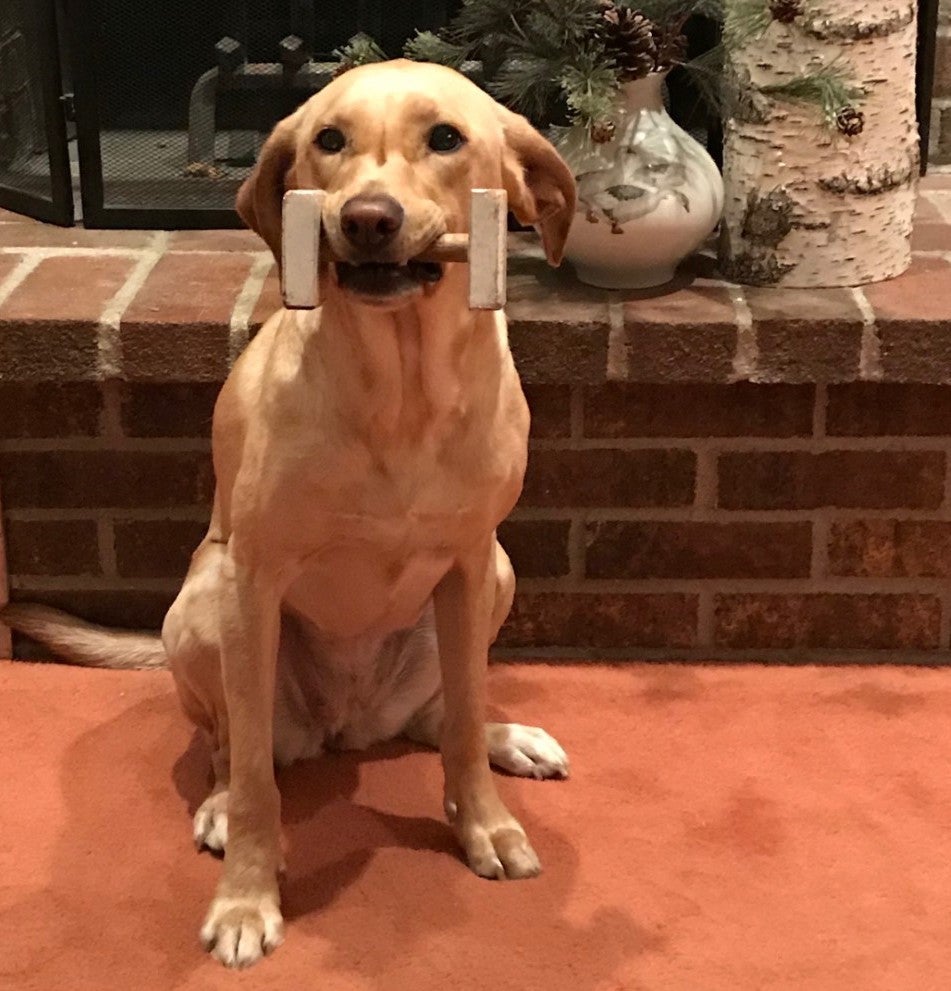
The individual journeys that dogs and their handlers take to the American Kennel Club Obedience Classic in Orlando follow a variety of paths.
Whether their goal is to achieve a perfect performance or to build an enduring relationship, their hard work will be on display when they compete on December 15 & 16.
All 243 teams, representing 36 breeds from 32 states and Canada, have their own compelling stories. Here are the challenges of four special obedience teams.
Kathy Walker and Drake, a Border Collie
Their can-do spirit dates to 2014, when Kathy Walker and her Border Collie, Drake, showed in the novice class of obedience competition. For both, it was all about racing the clock ahead of the Orlando competition. When Walker underwent knee-replacement surgery in June, she set a goal to show at Orlando in December. However, Drake still needed to qualify.
“I showed Drake two days before my surgery, which helped keep me distracted from worrying,” says Walker, of Flemington, New Jersey. “It wasn’t our best performance, but he qualified.”
Walker faced difficult, painful days ahead with physical therapy, but having the AKC Obedience Classic as a goal provided a strong incentive.
In Orlando, Walker competed with the assistance of a cane in order to meet the requirement of fast heeling, stipulating that the handler move briskly. The two placed in the top 20, a firm testimony to their energy and ambition.
They won the AKC Classic Open Division in 2015, but failed to place in masters for the past two years. Then, the unexpected happened. In June, the 7-year-old, 46-pound Drake was diagnosed with idiopathic facial paralysis.
New Challenges
“I noticed his left ear was off to one side, and he could not move it forward,” Walker explains. “The next day, he was unable to blink his eye. As the day went on, the left side of his face started to droop, so I rushed him to a veterinary neurologist.”

Three days later, Drake experienced symptoms of vertigo, but a battery of tests failed to result in a specific diagnosis.
The neurologist felt that with time, Drake’s facial paralysis could resolve itself, but his head tilt may be permanent. He immediately began having electroacupuncture and laser therapy, along with chiropractic adjustments.
After a training hiatus of several weeks, Drake embarked on a rehab program aimed at enabling him to regain coordination and balance for jumping, retrieving, heeling, and sitting perfectly straight.
The biggest struggle, because he is so fast at retrieving, was for him to slow down and maintain his balance while picking up his dumbbell. Other challenges are ‘fronts.’ When Drake is running with his head tilt he has trouble running straight. He has learned to take a small step to his left as he is coming into a perfect sit front.”
As a result of his therapy and hard work, Drake’s facial paralysis improved, and his blinking is back to normal. Adds Walker, “Judges have not made a comment about his head tilt, and I’m not sure, unless it is pointed out, that they would notice it.”
The team is entered in the masters class at the AKC Classic.
Ikena Hilmayer and Pivot, a Belgian Malinois
In late December 2014, a Belgian Malinois breeder called Ikena Hilmayer to tell her that she had a 14-month-old female coming back to her that needed an assessment. She had not seen the dog, nor did she have room for it at her kennel.
Hilmayer, of Stevensville, Ontario, Canada, who lives on a hobby farm with her husband, Jerry Burke, agreed to take a look.
“I had no intention of keeping this dog,” Hilmayer says. “I did not need another, since we already had four.”
Pivot arrived underweight and exhibiting signs of physical trauma. “She was afraid of people and other dogs. In a nutshell, she was frantic,” says Hilmayer.
Burke, who has an extensive training background in Germany and North America, characterized Pivot as “messed up” after observing her closely for several hours. But just one hour or so later, she jumped on his lap and promptly went to sleep. “He looked at me, smiled, and said, ‘There might be hope yet.’”
Pivot, appropriately named for her flip-flopping temperament, bonded quickly with the couple, but there were numerous challenges ahead in order to smooth out rough edges and establish comfort zones in public.
A Fresh Start
“We were in constant contact with the breeder, and it was agreed that we keep her. Even if she could not be a performance candidate, she would be our pet,” Hilmayer says.

Training proved difficult, since Pivot abhorred being touched and would not take food out of her new owners’ hands. When it came time to train, she would cringe and try to run from the area. Initially, she would not work in an obedience class. Hilmayer would offer her treats in the training room as far as possible from the other dogs. Gradually, Hilmayer and Pivot built up their instructional time to one hour, and eventually they reached the point of full-fledged participation.
“It was slow, tedious, and often frustrating,” she concedes. “I wanted to quit quite often. Many times I cried. Then I would remind myself how far this sweet little girl had come.”
The next step was building Pivot’s confidence and socialization skills without overwhelming her. “That was a delicate balance,” Hilmayer notes. “Gradually, she began looking forward to strangers talking to and touching her. She absolutely loves children.”
Pivot began to excel in obedience and rally, and by January 2016, she was entered in the pre-novice class at her first obedience trial. “She was overwhelmed by the presence of so many dogs in close proximity,” says Hilmayer.
“I immediately thought this was a big mistake. As we stood outside the ring, the next to go in, she would not sit, accept treats, or focus. I told her it was OK, and she could do this. She licked my face, and we walked into the ring. She let go of her worries and worked her heart out, and she blew me away.”
The pair is entered in the novice class at the AKC Classic Masters Class.
Pamela Blackstone and Sedona, a Belgian Tervuren
Sedona’s motherhood and Pamela Blackstone’s lack of experience in the ring are the key ingredients of this Cinderella story that has led to an extraordinary connection between the pair.
Blackstone, of Bernardsville, New Jersey, previously owned Tibetan Terriers and Bearded Collies, but went looking for a new breed in 2011, one that she could partner with to her first Grand Champion (GCH) and Obedience Trial Champion (OTCH) titles. Sedona, a Belgian Tervuren, made her conformation debut in the breed ring at 6 months old with a five-point major.
In April 2016, Sedona earned her OTCH title, and four months later she delivered eight puppies. After that, Blackstone focused on Sedona’s obedience title.

“Sedona is an affectionate, as well as serious dog that is motivated by being right. She is my dream dog and loves everything we have tried except swimming,” says Blackstone. “People often comment on her ‘serenity.’ She thrives on working and hates to watch others being the center of attention. Keeping her quiet in the crate is a work in progress.”
Seven-year-old Sedona has earned high marks in obedience, including being named the AKC and American Belgian Tervuren Club’s No. 1 Obedience Tervuren in 2017.
Blackstone gives a lot of credit to Sedona’s trainer, Linda Brennan of Top Dog Obedience in Flanders, New Jersey. Brennan has been Blackstone’s go-to mentor for several years. “I would not be here without her,” she adds.
Blackstone and Sedona will compete in the masters class at the AKC Classic.
Sheila O’Brien and Daisy, a Labrador Retriever-Mix
There’s no question that Sheila O’Brien and Daisy, originally a Mississippi shelter dog, were meant for each other.
O’Brien, of Richfield, Minnesota, adopted Daisy from a coworker who discovered within a month of taking her home from the shelter that the puppy was too much to handle with three children in the household. “She was looking for someone to take her, or she was going to return Daisy to the local humane society shelter. I couldn’t see that happening. She just needed a chance to develop in the right environment. She arrived with her crate, food, toys, and leash, and she was home,” says O’Brien.

O’Brien, an operating-room nurse, has been training and showing dogs for 30 years. “It is a fun, emotional release for me after a day in a pretty high-stress environment,” she says.
“Training dogs gives me concentrated time to look into their eyes, try to achieve, build a meaningful relationship, and have fun. It has helped me through many hard times.”
Daisy has served up plenty of training challenges for O’Brien. “While she is not ‘soft’ temperament-wise, she is sensitive to corrections. I have learned to just say, ‘let’s try it again’ softly, and she is better and willing to continue working. It took a long time to learn that, however.
“Because I have had other Labs, I thought she would simply fit into the same training groove. It was really frustrating to stop, be honest, and admit this is not working. Sometimes our egos get all caught up.”
Learning From Each Other
Through the training process, Daisy has taught her owner to step back, be kind, and recognize how hard she is trying and wants to please. At the same time, O’Brien recognizes the fine balance and need to maintain her high training standards.
Daily training stints last only 10-15 minutes. “I approach these sessions as putting money in the bank. You make and refine small additions, 5-to-10 cents here and there, a steady contribution, and then when you go to a show, you can make a withdrawal,” O’Brien explains.
O’Brien is honored and nervous about competing in the AKC Classic. Because mixed-breeds have no national specialty, she is treating this as theirs.
She approaches the 36-pound all-American dog’s obedience training and competition regimen by saying: “That’s where you came from, but this is where we’re going. Dogs don’t know if they are purebred or mixed. They just want to learn, achieve, and excel. When you get an older puppy or a dog and don’t know her background, it makes you dig a little deeper to discover what makes her tick and build a genuine connection.”
O’Brien and Daisy are entered in the open class at the AKC Classic.
The AKC National Championship presented by Royal Canin will take place Saturday to Sunday, Dec. 15 and 16, 2018, in Orlando, Florida. Tune in to AKC.TV, or download the AKC.TV app on Roku, Apple TV, or AmazonFireTV to catch the live stream starting on Saturday, Dec. 15 at 12 p.m. Eastern Time (ET). Watch the TV premiere on New Year’s Day on Animal Planet at 6 p.m. ET. Encore performance airs at 12 a.m. ET.

